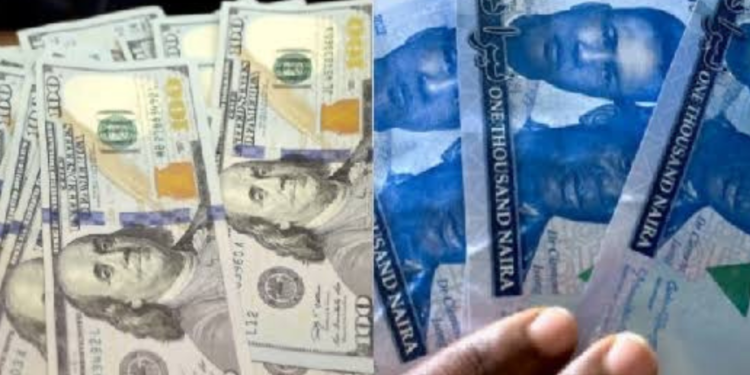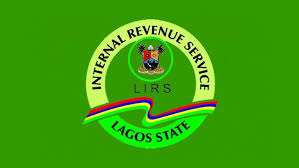The Bureau De Change (BDC) operators in Nigeria have linked the recent depreciation of the Naira in the parallel market to a severe scarcity of foreign exchange (forex) within the sector, as key sources of forex have significantly dwindled.
This development has raised concerns about the viability of BDC operations as they face mounting challenges in obtaining adequate foreign currency.
Aminu Gwadabe, Chairman of the Association of Bureau De Change Operators of Nigeria (ABCON), explained in an interview that the sector has been adversely affected by the recent policies implemented by the Central Bank of Nigeria (CBN).
These policies have disrupted the usual supply of forex to the BDC segment of the market.

Gwadabe emphasized that many members of ABCON are no longer receiving sufficient forex from traditional sources, such as export proceeds and international remittances.
As a result, BDC operators have been forced to rely on irregular interventions from the CBN to meet their forex needs, which has led to increased uncertainty and instability in the market.
He noted that one of the primary factors exacerbating the situation for BDC operators is the role of International Money Transfer Operators (IMTOs).
In his words, “The liberalization of the market has hindered supply inflows, which is being reduced drastically and has made it difficult for our people.
The International Money Transfer Operators (IMTOs) have ambushed the international remittance payment as most remittance payments now go their direction.”
This shift in the remittance flow toward IMTOs has deprived BDCs of a significant source of foreign exchange, making it increasingly difficult for them to operate effectively.
Additionally, Gwadabe highlighted that non-oil exports, another vital source of forex for BDCs, have also decreased significantly.
The Central Bank’s intervention in this regard has been inconsistent, contributing further to the difficulties faced by BDC operators.
“In the past, we used to do up to $40k weekly, but now it’s not more than $20k,” Gwadabe added, underscoring the dramatic reduction in forex availability.

The scarcity of forex in the parallel market has triggered a continuous decline in the value of the Naira, and according to Gwadabe, this trend will likely persist unless the CBN provides more regular and substantial intervention.
He stressed the importance of the BDC segment, describing it as a critical player in the retail end of the forex market.
The dynamics of the market, Gwadabe explained, are highly sensitive to perceptions of scarcity among buyers and sellers, which can quickly lead to further depreciation of the Naira.
By the end of September 2024, the Naira had reached its lowest value in seven months, falling to N1,700 per dollar in the parallel market.
However, there was a slight recovery in the early days of October. Meanwhile, the official market recorded a significant depreciation of up to 8%, further reflecting the impact of the forex shortage.
The CBN has taken steps over the past year to regulate the operations of IMTOs, aiming to attract more foreign exchange into official channels from international remittances.
According to the World Bank, Nigeria received approximately $19.5 billion in remittances in 2023, which constituted around 35% of the total remittances to Africa.
However, despite this large inflow, only about 10% of the remitted funds entered the official forex market.
According to Taiwo Oyedele, Chairman of the Presidential Committee on Fiscal Policy and Tax Reforms, the remaining 90% of these remittances were absorbed by the parallel market, further contributing to the forex challenges faced by the BDC sector.
In response to these issues, the CBN introduced several reforms within the IMTO industry in early 2024.
One of the key measures taken in January was the removal of the exchange rate cap of +2.5% and –2.5% around the previous day’s closing rate for transactions.
This decision marked a significant step towards the liberalization of Nigeria’s forex market, allowing for greater flexibility in exchange rate movements.
In addition to the exchange rate cap removal, the CBN also revised its guidelines for IMTO operations, increasing the IMTO license application fee from N500,000 in 2014 to N10 million—a staggering 1,900% increase over ten years.
Furthermore, the CBN set a new minimum operating capital requirement of $1 million for foreign IMTOs, with an equivalent requirement for local operators.
These regulatory changes, combined with the CBN’s approval of 14 new IMTOs in 2024, have led to a significant increase in remittances through IMTOs.
During the latest Monetary Policy Committee (MPC) meeting, CBN Governor Yemi Cardoso noted that international remittances through IMTOs had surged by 130% to $585 million in August 2024, compared to the same period in the previous year.
Additionally, data from the CBN revealed that international remittance inflows reached $1.07 billion in the first quarter of 2024, representing a 39% increase from the $770.23 million recorded in the same quarter of 2023.
This upward trend has continued, with monthly inflows rising steadily from $383 million to $585 million by August 2024.
These developments indicate that the CBN’s regulations on IMTOs have been successful in boosting remittance inflows through official channels.
However, the impact of these reforms on BDC operators remains uncertain, as they continue to grapple with declining forex supplies and irregular CBN intervention.
The struggles faced by BDCs have been compounded by the CBN’s recent guidelines, which included a significant increase in the minimum capital requirement for Tier-1 BDCs.
This requirement was raised by over 5000%, from N35 million to N2 billion, placing additional pressure on BDC operators to adapt to the changing regulatory landscape while dealing with the ongoing forex scarcity.



































